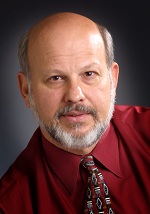In addition to creating horrors for all involved last week, Shannon Lamb tested the media’s ability to track and report a developing story in this new era of gushing “real time” information.
Monday morning, Lamb told authorities by phone that he had shot Amy Prentiss in the Gautier home they shared near the Mississippi Gulf Coast. After that call, he shot and also killed a faculty colleague, Ethan Schmidt, at Delta State in Cleveland. Hours later he killed his third victim — himself — near Greenville.
Overall, the scores of Mississippi media should be ranked “good.” With every tick of the clock, every development, it appeared proper verifications were obtained before updates were aired or posted on media websites. This was made possible by open and professional law enforcement and by Delta State leaders being willing to say what they knew as soon as they knew it.
There are lessons all around.
We don’t think about it much, but First Amendment doesn’t require the media to be responsible. Professionalism is an ethical and business decision.
How so? Fundamentally, media companies need an audience. No audience, no revenue.
There are all sorts of ways to attract and keep an audience — entertain, affirm or shock to name just a few. The audience media companies want is those seeking facts, not fiction. And the keys to retaining an audience are being reliable both in terms of speed and accuracy.
Many of these core factors became lost, confused or both when the Internet first started bringing every local news outlet in the nation to the screens of every information-seeker in the world.
Many old-school media people threw their rulebooks out the window and started joining the wandering conversations taking place in social media. Many law enforcement agencies simply clammed up.
It is true that a person can find anything on the Internet … photographs of actual unicorns or the mosque that President Obama has secretly built inside the White House … maybe even unicorns in Obama’s mosque. And it’s true that there is nothing wrong with wide-ranging conversation. It’s what the founders of the nation wanted. Free discussions tend to funnel toward truth; controlled conversations do not.
There were many conversations taking place on many Internet platforms starting the instant Delta State’s campus was declared on lockdown after gunshots were heard in an academic building. Students were “talking” to each other nonstop through texts, Instagram, SnapChat and otherwise. And the University was talking to its students through Twitter, giving brief, accurate, precise statements and directions about what was going on and what they needed to do.
About the same time, a well-trained detective in Gautier, Matt Hoggatt, provided a video interview to the local newspaper. Based on this, people following developments were able to make the link to Schmidt’s death, which was promptly and respectfully reported by Delta State officials. No doubt, this gave some assurance to frantic parents everywhere that these were targeted slayings, not wholesale spray downs by a madman.
Now the media didn’t get everything right the first time. There were scattered reports of sightings of the car Lamb was driving, that he had been taken alive and such. There were isolated hints that the men were rivals for the affection of Prentiss.
But all-in-all, a maturing of the media was evident. The contents of Facebook pages and comments and opinions seemingly being floated by every person with a keyboard and a wifi connection were not reported as news.
And, crucially, police in Gautier and police and administrators at Delta State were rapid and forthcoming with information about exactly what was going on, which allowed media to relate facts instead of speculation.
Never before in world history has the media had tools and technology everybody has today. Events of all types can be tracked, captured, described and related in events in real time to an unlimited audience.
Citizens have exactly the same tools, but it’s not their job to apply the filters, to seek confirmation and avoid commentary and speculation. They can be raucous and wrong and nobody should care.
It is the job of media companies to maintain the values of integrity and responsibility — at least if they wish to stay in business.
Journalists in Mississippi did well, and of equal if not greater importance, so did law enforcement and the leadership of Delta State University.
No one wanted the test “Professor” Lamb administered that day, but those whose job was to relate the events did so responsibly and effectively.
Charlie Mitchell is a Mississippi journalist. Write to him at cmitchell43@yahoo.com.

